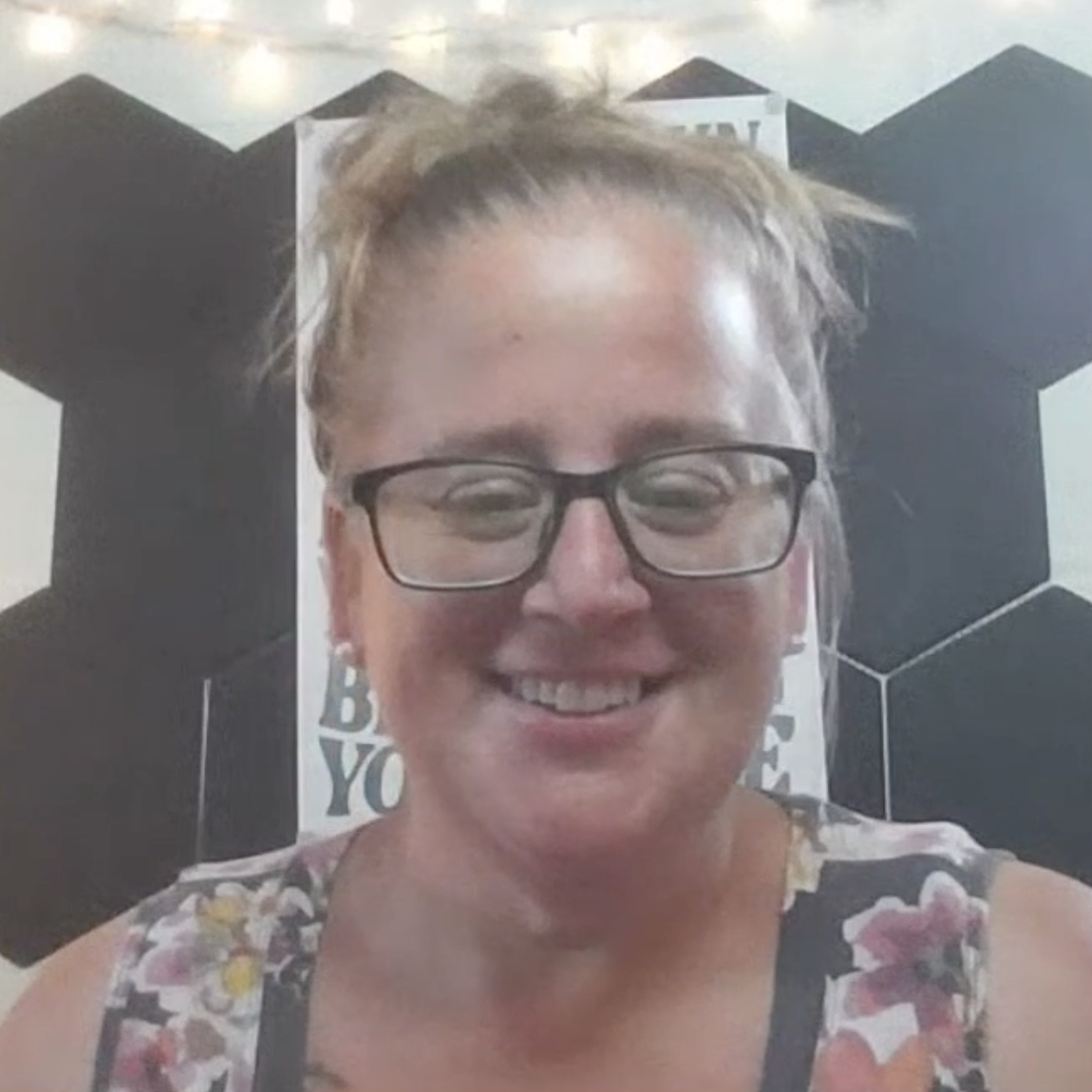
It’s not the people who don’t work. I have a job. I’ve always had a job. It is to help fill in those gaps of insurance that does not cover. Like we simply could not afford his medication if we did not have help.
Miranda Dee is the mother of two children, a 17-year-old daughter who is a high school senior and a nine-year-old son who is entering the fifth grade. About a year and a half ago, her son was diagnosed with type one diabetes. It’s still all pretty new to us,” Miranda shared, “He’s done very well with it, which is amazing because it could be a lot worse. Very stressful, it was a lot. And then to know that for the rest of his life and the rest of our life, he has to have insulin to live.”
Her son uses an insulin pump, and a continuous glucose monitor (CGM) to manage his condition. The devices help keep him stable, but they come with overwhelming costs. “Right now, he’s on a pump. He’s on the Tandem Mobi. So, he has cartridges, and he wears a Dexcom on his arm that tells us his glucose all the time. These things are very expensive. Like the insurance, the one time didn’t go through, and I could actually see how much it was. It was $550 for just his insulin for the month. That’s just insulin. That’s not including pumps, CGMs, no nothing.”
Miranda explained that insurance coverage is limited, leaving her family to pay out of pocket for other essential supplies.
“They pay for one type of finger poker, the strips for the readers and they take too much blood…So we have bought our own that take much less blood. So that’s an expense. And then all the cute little patches that they wear, those are, each one of those patches are three to $4 a patch. So like there’s so much expense that you don’t realize.”
In addition to the costs of managing his health, Miranda must keep up with the normal expenses of raising children. “I can’t imagine trying to pay for all of the medical stuff on top of all the other extras. Like, and then he plays sports. You have your natural stuff that you pay for with your kids also.”
But their challenges go beyond money. Every day brings constant monitoring, alarms, and decisions about food, exercise and dosing insulin.
“Some days we just get up and he just has to dose before he eats anything. So, anything that goes into his mouth we have to check if it has carbs, how many carbs it has. And then he doses on his phone. Thankfully we have the technology that we have now. I know I’ve talked to a lot of type ones who are like, yeah, my mom used to wake up every two hours and finger poke and I’m like, oh my gosh, I don’t sleep now. I can’t even imagine not having the technology. Like that would be crazy to me. Like I wake up now to alarms, of course. Anytime he goes low, you got to wake up. You have to give him sugar. He has to have a juice. So I’m not a lot of sleep either.”
While caretaking for her son, Miranda also lives with a chronic health condition of her own. “I have no thyroid. So, I have to take thyroid medicine daily to produce the thyroid hormone because I don’t produce any of it…And if I didn’t, I would die also.”
For Miranda, surviving all of these challenges would not be possible without the lifesaving help of Medicaid. It works as secondary coverage to her son’s insurance through his father and fills in the gaps that would otherwise leave the family in financial crisis.
“Thankfully we know we will not have a cost, which is a huge relief…the one time that the Medicaid didn’t cover and it was $550 for his insulin, that was the deductible. Like who has $550? Just be like, here you go. Like that’s deciding between food, and car insurance…If we don’t pay for it, he’ll end up in the hospital and you’re going to pay more in the long run cause he’s going to be admitted.”
She knows firsthand that Medicaid is not about getting a handout but about survival. “It’s not the people who don’t work. I have a job. I’ve always had a job. It is to help fill in those gaps of insurance that does not cover. Like we simply could not afford his medication if we did not have help.” For Miranda, the reality is simple:
“This is not a free handout to me. This is to keep Elias alive.”
Add your voice to help us continue to push for the best health and health care for all.
SHARE YOUR STORY